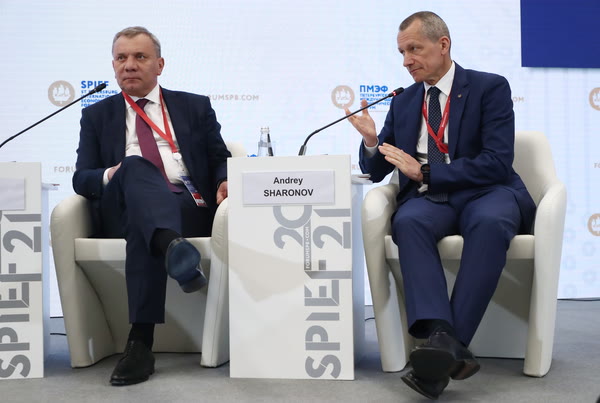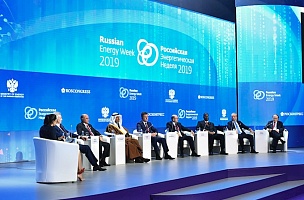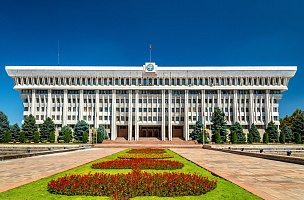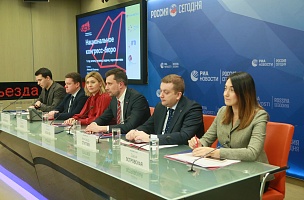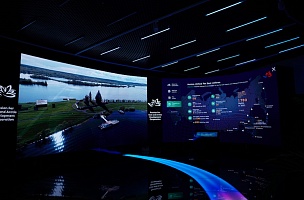KEY CONCLUSIONS
Industries need market outlets, including foreign ones
“Making a product and selling it is not the same thing. Nobody needs manufactured products stuck in the warehouse. If nobody needs those tons of coal or fertilizers, they don’t bring money,” Dmitry Mazepin, General Director, URALCHEM.
“Back in 1990, I met an American businessman. He asked me: “What is the difference between a plant and a company?” I could not give him an answer. He said: “The main thing is, a plant produces, and a company sells”. Many people here still live with the plant mindset,” Andrey Sharonov, President, Moscow School of Management SKOLKOVO.
“Export is also, in fact, a sales market. It is not exactly subject to administrative pressure, but the tools are still there. There are export credits, subsidizing interest rates to buyers, rather than to producers, etc. We have an institution, which, I believe, is working well – it is the Russian Export Center,” Petr Fradkov, Chairman, Promsvyazbank.
“We often see that the main problem with exports is the mindset of business owners. Basically, they do not let themselves consider selling their products as it is or slightly improved. It is not even a matter of quality of products and services. It is not a matter of financial support. It is a matter of people not seeing… that other markets exist, too,” Andrey Sharonov, President, Moscow School of Management SKOLKOVO.
PROBLEMS
Insufficient funding and weakness in related industries hold back the development of Russian industry
“Russia has lost about 3% of GDP, although developed economies shrank by around 4.4%. But it [the pandemic] also cost us a pretty penny. As you know, we had to spend nearly 4 trillion roubles on top of the budget on targeted support measures, primarily in the strategically important industries,” Yury Borisov, Deputy Chairman of the Government of the Russian Federation.
“The global problem that we see is, again, not a new one, but that is how enterprises set it forward. That is, of course, access to our own resources, financial resources, which, among other things, should be invested in the development of civil industries. <…> Foreign investors represent 1% of what is available today. 10% is credit funds. So, everything else is, more or less, the enterprises’ own funds,” Petr Fradkov, Chairman, Promsvyazbank PJSC.
“People often ask me – the Koreans are generally more competitive in shipbuilding than we are. <…> Of course, [there are] vertically integrated structures, where usually only the final product is priced by the market. Everything else is subject to making a profit from the final product, which pulls the entire value chain. And this is where we still have a lot to do in order to create the production of basic components. We need national champions in building diesel engines and ship equipment. It will be extremely difficult for us to break through to foreign markets without them,” Alexey Rakhmanov, Chairman of the Board, Chief Executive Officer, United Shipbuilding Corporation.
SOLUTIONS
Business-friendly financial instruments can open up new prospects for industries
“We believe, creating a base bank is a very timely and necessary decision, which allows us to lend to industries by accumulating large funds in that bank. And not only in defense industry, but in various sectors, in civil projects particularly,” Yury Borisov, Deputy Chairman of the Government of the Russian Federation.
“Last year we made a decision that we were basically leaving 5% loans behind, and the biggest interest rate would stand at 3%. <…> In 2020, the final score in the [primary] import substitution implementation plans was, let us call it 1:0. We now have a model where plans for a three-factor approach are being shaped up, that is, with the emphasis on components, raw materials and means of production. We are now engaged in an active dialogue with the Ministry of Finance regarding a separate programme, so that up to 100% of the fund’s loans would be written off if certain covenants are fulfilled,” Aleksey Uchenov, Deputy Minister of Industry and Trade of the Russian Federation.
“We issue revolving loans to support working capital for the purchase of raw materials. Since the pandemic period was characterized by delayed payments, we issue loans for working capital from our regional fund to small and medium-sized businesses – so that this payment chain does not break, and they can buy raw materials and withstand competition due to deferred payments,” Igor Rudenia, Governor of Tver Region.
For more information, visit the ROSCONGRESS.ORG Information and Analytical System.


